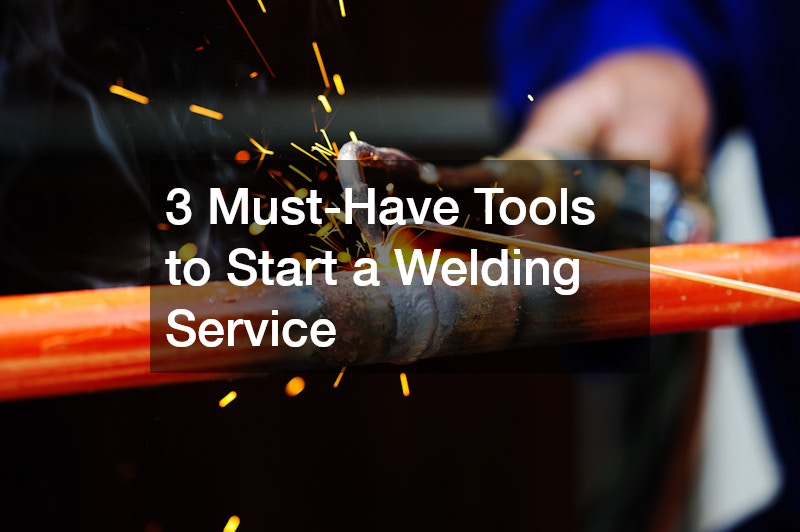
Starting a welding service requires knowledge, skill, and the right set of tools. In this article, we will guide you through the essential equipment you need to set up your welding business and ensure you’re ready to handle a variety of projects. From choosing the proper welding machine to establishing a safe working environment, we’ll cover the fundamentals that every aspiring welder should know.
Video Source
As you embark on this exciting journey, it’s crucial to understand that having reliable equipment is just as important as having welding skills. Investing in high-quality tools will not only improve your work efficiency but also enhance the durability and quality of your projects.
Every beginner welder needs a set of essential tools that lay the foundation for any project. The basic toolkit should include a welding machine, a selection of electrodes, and a grinder. Protective gear, such as gloves, helmets, and jackets, are vital for ensuring safety while you work. A sturdy welding table or bench provides a stable workspace and enhances your control over the welding process. Additionally, having a variety of clamps and magnets is essential for holding metal pieces securely in place during welding.
When selecting welding tools, consider versatility and durability; a good starting point is a multi-process welding machine. These machines offer the ability to perform MIG, TIG, and stick welding, making them suitable for various applications you might encounter. Investing in such a machine not only saves space but also prepares you for a broader range of jobs. Beginners should also keep hand tools like wire brushes, chipping hammers, and pliers at the ready for post-weld cleanup. The right tools will significantly impact the quality of your welds and your efficiency on the job.
Choosing the right welding machine can seem daunting due to the variety of options available. First, assess the specific types of projects you intend to tackle, as different machines suit different applications. For instance, MIG welders are great for quick jobs, while TIG welders provide more precision for detailed work. The welding machine you select should complement the types of materials you frequently use, whether it's steel, aluminum, or another metal. Additionally, consider the power requirements of the machine, ensuring it matches your workshop's electrical capacity.
Portability is another factor to evaluate, especially if your business includes onsite work at different locations. Lightweight, portable machines are easy to transport and set up, providing flexibility for various projects. Look for a machine with a good duty cycle, which indicates how long a machine can weld before it needs to cool down. Read reviews and seek recommendations from experienced professionals who can provide insights on reliable brands and models. A good warranty and customer support can also influence your choice, offering peace of mind for any technical issues or maintenance needs.
Safety is paramount in welding due to the inherent risks involving high temperatures, electrical currents, and harmful fumes. Always wear appropriate personal protective equipment (PPE), including welding helmets with filtered lenses, flame-resistant gloves, and protective clothing. Prescription safety glasses can be worn under a helmet for individuals who require vision correction. Proper ventilation in your workspace is necessary to mitigate the exposure to hazardous fumes produced during welding. Remember that ear protection is also vital when working in noisy conditions to prevent long-term hearing damage.
Setting up an efficient and functional welding workshop is integral to the success of your welding service. Start by choosing a well-ventilated and adequately lit area, which ensures a comfortable and safe working environment. The space should be accommodating, allowing room for various equipment and materials while providing easy movement. Incorporate sturdy and robust workbenches that can support heavy materials and withstand the intensive work involved in welding. Storage solutions, such as shelves and cabinets, are necessary to organize tools, accessories, and safety equipment.
In conclusion, starting a welding service demands thorough preparation in choosing the right tools, securing a safe working environment, and maintaining your equipment effectively. From understanding essential tools and selecting a suitable welding machine to implementing safety measures and establishing a functional workshop, each aspect contributes to your business's foundation. Staying diligent with maintenance practices ensures the longevity of your tools, preserving quality standards across all projects. As you continue to build your business and hone your skills, the initial investment in quality equipment and workshop setup will prove invaluable. By understanding the essentials and keeping up with maintenance, you can ensure the success and longevity of your welding business.
.